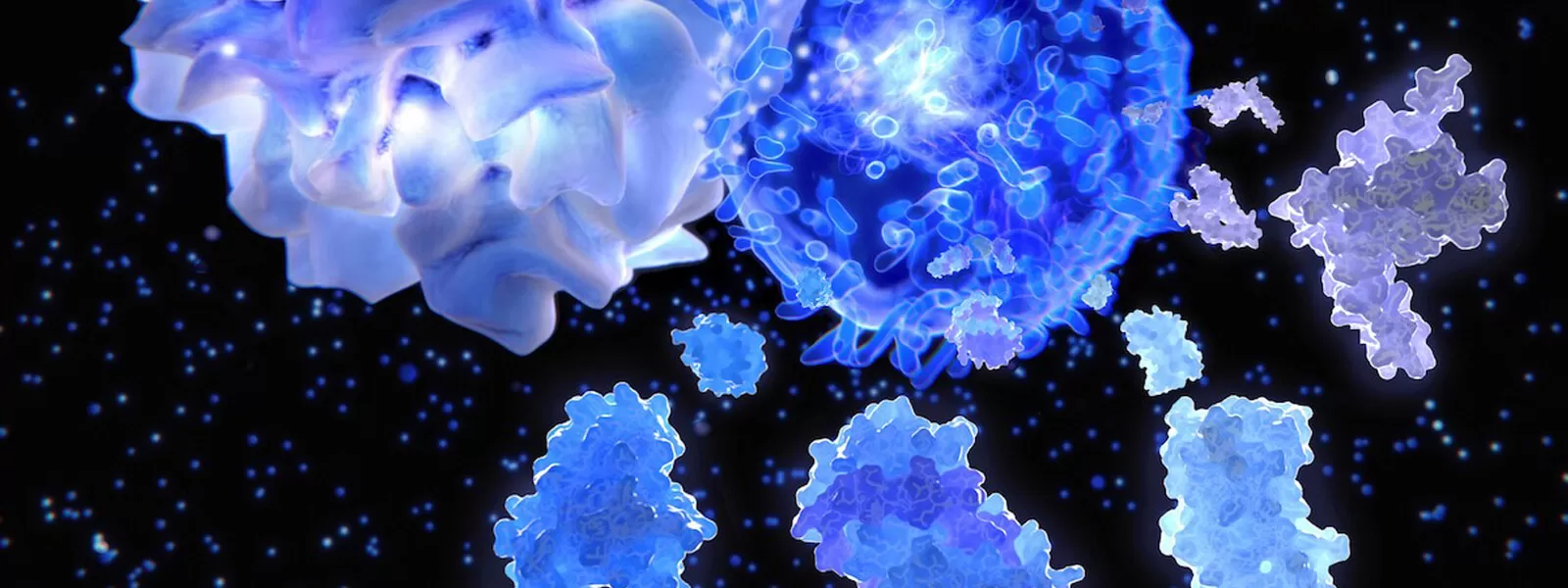An Immune System “GPS” Uncovers Pathways to Treat Diseases

When it comes to understanding the immune system, we’re in the age of a data “traffic jam.” Thanks to advances in gene sequencing technology and decades of research, we’ve amassed a huge trove of information, but utilizing it to drive new insights can be challenging.
A collaboration with Israel-based startup CytoReason is allowing Pfizer scientists to harness computational technology that functions as a “GPS” for the immune system. The tools help to unpack these complex data sets so they can provide relevant information on the body’s immune functioning down to the molecular level. “This technology is layering and packaging all that information so it’s humanly digestible and searchable,” says
David von Schack, Senior Director, Head Molecular Systems Immunology, based at Pfizer’s Kendall Square, Cambridge research site.
Think about how a navigation app works. It aggregates a large amount of data on your surrounding area, such as traffic patterns, police activity, nearby gas stations. This technology follows the same concept. It combines immune system data from a variety of sources, including the large body of published research on the immune system, Pfizer’s in-house data, and clinical studies. And whereas a traffic app will help you find the fastest route home, scientists are using the machine-learning model to uncover insights into the biology of autoimmune diseases, to suggest new drug targets or to identify patients that may benefit the most from a certain medicine.
Unpacking Signals
One key computational approach developed by Cytoreason enables reseachers to take averaged gene expression information from a homogenized vial of blood or tissue biopsy and estimate the cellular composition of the original samples. “CytoReason is helping to unpack this homogenous signal, breaking the immune system down into its cellular components and allowing us to zoom in for a deeper understanding,” says Daniel Ziemek, Senior Scientific Director, leading the Computational Systems Immunology Group at Pfizer.
Dissecting the immune system down to its molecular and cellular components enables scientists to understand how conditions such as lupus, inflammatory bowel disease or rheumatoid arthritis exhibit unique“molecular signatures.” For example, inflamed tissue can have a unique gene expression pattern that is tied to an activated cellular state. “We can look at the unique pathways that are dysregulated leading to certain diseases, and to help find new drug targets,” says von Schack.
Beyond looking for new biological targets for a disease, the computational model can also be used to better understand why certain populations respond to a drug and to predict which other conditions may be treated using an existing drug. In a recent example, the CytoReason collaboration helped scientists understand how to best apply an experimental compound that interferes with a CCR6, a protein that is elevated in certain autoimmune diseases. By examining data on the ligand (a molecule that binds to a specific receptor, delivering a signal), its receptor, and the cells that express these two proteins, Cytoreason could better understand how these components come together in diseased tissue. The tools also helped develop a hypothesis as to which disease could benefit most from the CCR6 inhibitor. The results pointed strongly towards ulcerative colitis, a form of inflammatory bowel disease (IBD), as a good fit.
“The results we found in partnership with CytoReason supported Pfizer’s decision to begin the clinical development of this drug, which just began its Phase I trial in July, with IBD as its first indication,” says Mike Vincent, Chief Scientific Officer of Pfizer’s Inflammation and Immunology Research Unit.
And in the era of precision medicine, this information may someday be used to prescribe a medicine with a higher-level of specificity, says von Schack. “We’re now trying to position our drugs more precisely, with an understanding that not everyone is at the same stage of disease and has the same medical history.”
As we continue to gather more data on the immune system, these models will help us to unlock the power of this detailed information to enable faster and more efficient drug discovery.





